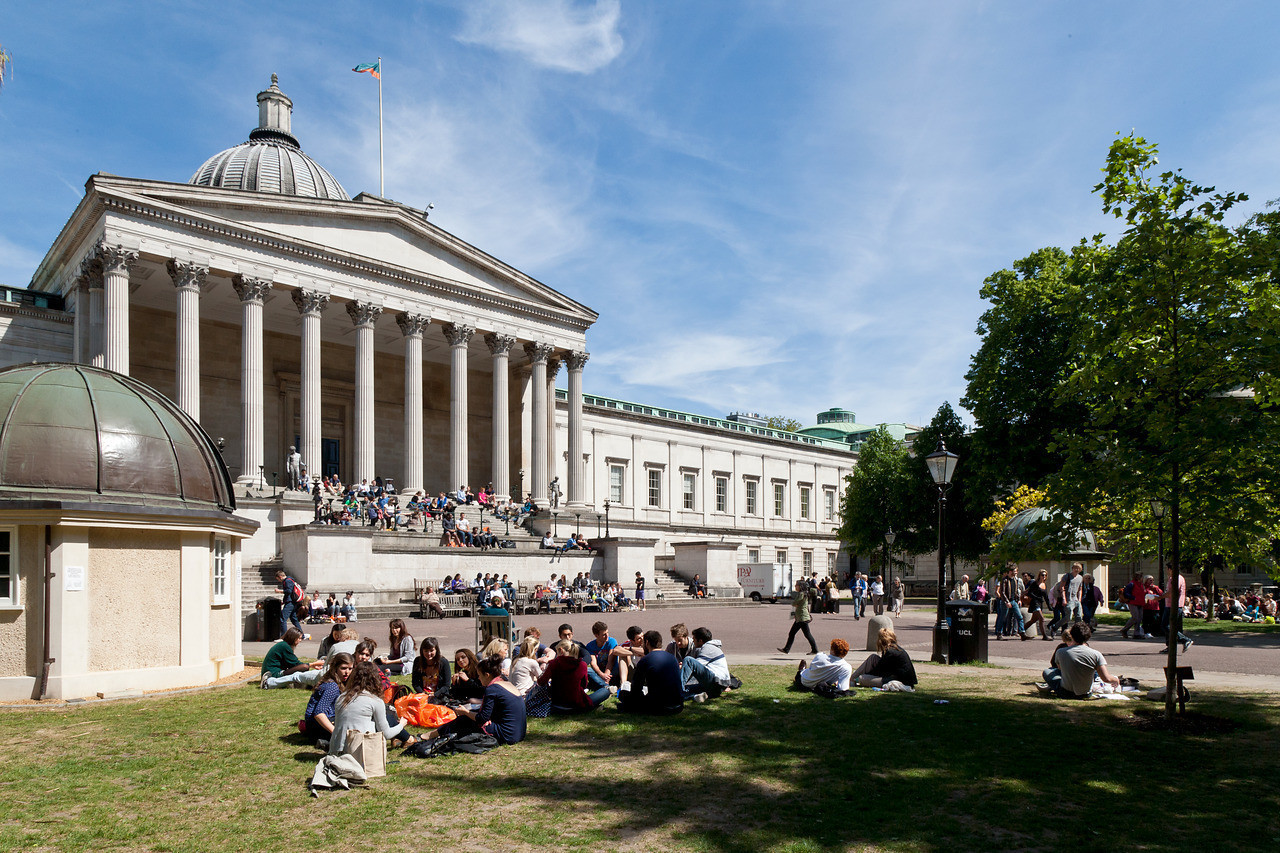University College London (UCL) was founded on 11 February 1826 under the name London University, as a secular alternative to the strictly religious universities of Oxford and Cambridge.
UCL is ranked joint fifth in the world’s top ten universities by the QS World University Rankings (2014). The UCL Institute of Education is ranked number one for education. UCL is ranked twentieth in the Shanghai Academic Ranking of Word Universities (2014).
UCL is the top-rated university in the UK for research strength (Research Excellence Framework 2014), by a measure of average research score multiplied by staff numbers submitted. It was rated top not only in the overall results, but in each of the assessed components: publications and other research outputs; research environment; and research impact.
UCL is organised into 11 constituent faculties, within which there are over 100 departments, institutes and research centres. UCL has around 36,000 students and had a total income of £1.02 billion in 2013/14, of which £374.5 million was from research grants and contracts.
UCL has 983 professors and more than 6,000 academic and research staff who are dedicated to research and teaching of the highest standards.
UCL’s academic community includes 53 Fellows of the Royal Society, 51 Fellows of the British Academy, 15 Fellows of the Royal Academy of Engineering and 117 Fellows of the Academy of Medical Sciences.
Nobel Prizes have been awarded to 29 people who are or were students or academics at UCL. The most recent addition, in 2014, is John O’Keefe (Medicine). 11 UCL Honorary Graduates and Fellows have also been awarded Nobel Prizes.
The prestigious Fields Medal for mathematics has been awarded to two former students and one academic.
UCL is associated with several major teaching hospitals – such as the Great Ormond Street Hospital for Children, the Royal Free Hospital and Moorfields Eye Hospital – which provide Londoners with first-rate healthcare and contribute to major advances in medical research.
In 1973, UCL became the first international link to the ARPANET the precursor of today’s Internet, sending the world’s first electronic mail, or e-mail, in the same year.
52% of the nearly 36,000-strong student community is engaged in graduate studies, with nearly a third of these graduate students pursuing research degrees.
Students from 150 countries study at UCL, making up more than one-third of the student body.
An ever-expanding worldwide network of more than 200,000 UCL alumni, helps to maintain the university’s international reputation for access, innovation and excellence.

UCL Portico and Main Quadrangle. Photograph © UCL Media Services – University College London